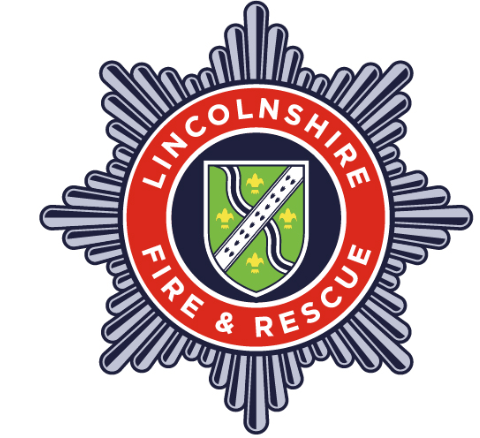River, Surface Water and Groundwater Flooding
What is the risk of river, surface water and groundwater flooding to Lincolnshire?
Rivers and streams
River sometimes referred to as ‘Fluvial’ flooding is when waterways (rivers and streams) overflow or breaches in their banks causes water to flow into the surrounding areas.
Surface water
Known as ‘pluvial flooding’ (where rainfall overwhelms the drainage systems). Surface water flooding is when the amount of rainfall exceeds the ability of the drainage system to take the excess water away. When the rainfall reduces or stops, the drains generally manage to remove the excess water over a period of time.
You can download the information used on this page via a bite-size risk information document.
Groundwater flooding
When water under the ground (the water table) rises to the surface. Underground rooms, such as cellars and basements, are particularly at risk. It can occur months after heavy rainfall and last for longer periods of time.
How could flooding
affect you and your property?
- Risk to life
- Disruption to utilities (electricity and water supply)
- Damage to property, businesses and agricultural land
- Widespread structural damage
- Risk to life of livestock
- Flooding of properties for up to 14 days
- Pollution and contamination of local environments
- Evacuation of residents
- Long term damage to tourism
- Short, medium and long term businesses and agriculture
- Loss of accommodation for those whose homes or businesses are flooded
- Damage to national critical infrastructure (North Sea oil and gas installations)
- Unrecoverable damage to businesses
We can all be better prepared to
respond and recover from flooding
Follow these practical steps so you and your family can be better prepared for flooding.
Check if your home is at risk
Find out if your property is within a flood risk area.
Create an evacuation plan
Plan where you will go if you have to evacuate and how you will get there.
Prepare your property
Fit appropriate flood protection devices to your property.
Identify vulnerable neighbours
Identify neighbours who may need assistance or who may be able to provide assistance to you, in case of evacuation.
Have supplies in your home
Tinned food, long life products, none-cook food and alternative cooking methods such as BBQs and camping stoves will help you to cope for up to three days if you are unable to evacuate
Sign up for flood warnings by phone, text or email
How to prepare
your business
How to prepare
your community
Evacuating
during a flood
- If you are advised to leave the area for your safety decide where you will go and how you will get there
- Ensure you have enough fuel in your vehicle for your journey
- Know how to safely turn off your electricity, water and gas supplies (if you’re unsure, ask your supplier company)
- Remember to take your medication with you
- Where possible take your pets with you
- Let your neighbour(s) know what you are doing – where you are staying/going
Staying put
during a flood
- Have supplies in your home that will enable you to cope for up to three days if you are unable to evacuate
- Take your valuable items upstairs, if possible, or place them up high in cupboards/shelves to protect them
- Avoid walking through flood water as much as possible – there can be hidden dangers such as debris/ sharp objects
Medical advice
- If you need medical help and you are evacuated from your home visit NHS 111 online or call 111
- If you are away from home, you can call your registered GP Practice for a telephone or video appointment
- If you are able, please let your GP Practice know you have been evacuated if you have any appointments
- If your practice needs to cancel your appointment you do not need to do anything they will contact you to rearrange the appointment
- If you need any medicines during the evacuation and you forget them you can contact your GP Practice or NHS 111
Report a Flood
River Flooding
- Telephone the Environment Agency’s Floodine number 0345 988 1188 if you are experiencing flooding
If you have experienced a flood, please complete the Lincolnshire County Council Resident Flooding Survey to provide valuable information. If it meets investigation criteria, LCC will assess the flooding, make recommendations, and publish the findings.
Surface Water / Groundwater Flooding
- Telephone 01522 782082 Lincolnshire County Council Customer Service Centre if you are experiencing flooding or want to report local flooding
- By email [email protected] (this email is monitored Monday to Friday during office hours)
- Online via FixMyStreet
Find your emergency contacts for river, surface water and groundwater flooding
After a Flood
- Keep monitoring the Environment Agency flood alerts.
- Continue to monitor this website and the LRF social media channels for guidance and advice.
- Listen to BBC Radio Lincolnshire for the most up to date information.
- If you haven't reported property flooding you are encouraged to do this as this will allow agencies to respond and help. This can be done via: www.lincolnshire.gov.uk/flood-risk-management/report-flood
- Contact your local council for advice and guidance on recovery.
If you were flooded
- Take photographs of any damage if it is safe to do so - to provide to your insurance company
- Before you attempt to switch anything back on again;
Get your electric meter checked by the electricity transmission company
Get your fuse box and electrical sockets checked by an electrician
- Before you drink tap water check that it is now safe to drink with Anglian Water, if in doubt boil water first or use bottled water.
- Before you use gas appliances get a Gas Safe Engineer to check to ensure they are safe.
- Be aware of the health effects caused by a flood. When cleaning up wear appropriate clothing and protection as flood water can be contaminated with harmful bacteria. Safely clean up your home advice - Floods: cleaning your home safely - GOV.UK
- Be mindful of how the stress and traumatic feelings of personal loss can have an impact on your own and the mental wellbeing of others. What to do after a flood - GOV.UK (www.gov.uk)
What can you do to support your Community?
- Identify neighbours who may need assistance or who may be able to provide assistance to you
- Find out how to prepare for an emergency and download a flood plan here: Get Involved – Lincolnshire Resilience Forum
- Join or start an Emergency Community Group – Get Involved – Lincolnshire Resilience Forum
- Make sure that any vulnerable neighbours or relatives are safe and help them make arrangements if they require assistance.
For help with flood related insurance visit Find an insurer - Flood Re
Have a look at the guidance produced by the Lead Local Flood Authority https://www.lincolnshire.gov.uk/flood-risk-management
How prepared is your business?
- Would your business stay afloat? This is a simple guide to some of the easy actions that you can take to make sure that your business is as well prepared as possible for flooding.
- It tells you how to find out if your business is at risk, information about the Environment Agency’s flood warning service and it also has a simple template to use to design a flood plan for your business.
- Complete the Business Resilience Health Check
- Make sure you have suitable business insurance, the Association of British Insurers provides useful advice and information.
- Consider communicating with other local businesses about your plans and how you could support each other.
What is being done to become
better prepared?
We work together to:
- Prioritise support to vulnerable residents in the highest risk areas.
- Assist people to evacuate an area if they require it.
- Provide a helpline so people can request support.
- Produce multi-agency plans so that every responding organisation knows what they can do, at the right time, to support people who may be affected by flooding.
- Test the multi-agency plans through a variety of exercises.
- Keep the public informed of the changing situation via local media stations, social media and the LRF website.
- Maintain two-way communication with central government to ensure that any additional national resources can be provided to support the local response.
We can request military support when it is appropriate to assist with the response and rescue phase.
Who is responsible for managing
flooding in the county?
Lincolnshire County Council is our Lead Local Flood Authority and is responsible for pluvial flooding from overwhelmed drains.
The Environment Agency is responsible for fluvial flooding where waterways overflow their banks into surrounding areas.
Further flooding resources
Are you signed up to receive flood warnings? If not call the Environment Agency Floodline on 0345 988 1188 to see if your area receives free flood warnings.
Discover how you can be better prepared to deal with flooding, with suggested protection methods from the Lincolnshire Resilience Forum.
Storymaps
Storymaps are a visually interactive way for you to find out more information about some of the top risks to Lincolnshire and what you can do in the event of one of these risks. The information is reader-friendly and interactive making it easy to navigate
Some of our partners

















